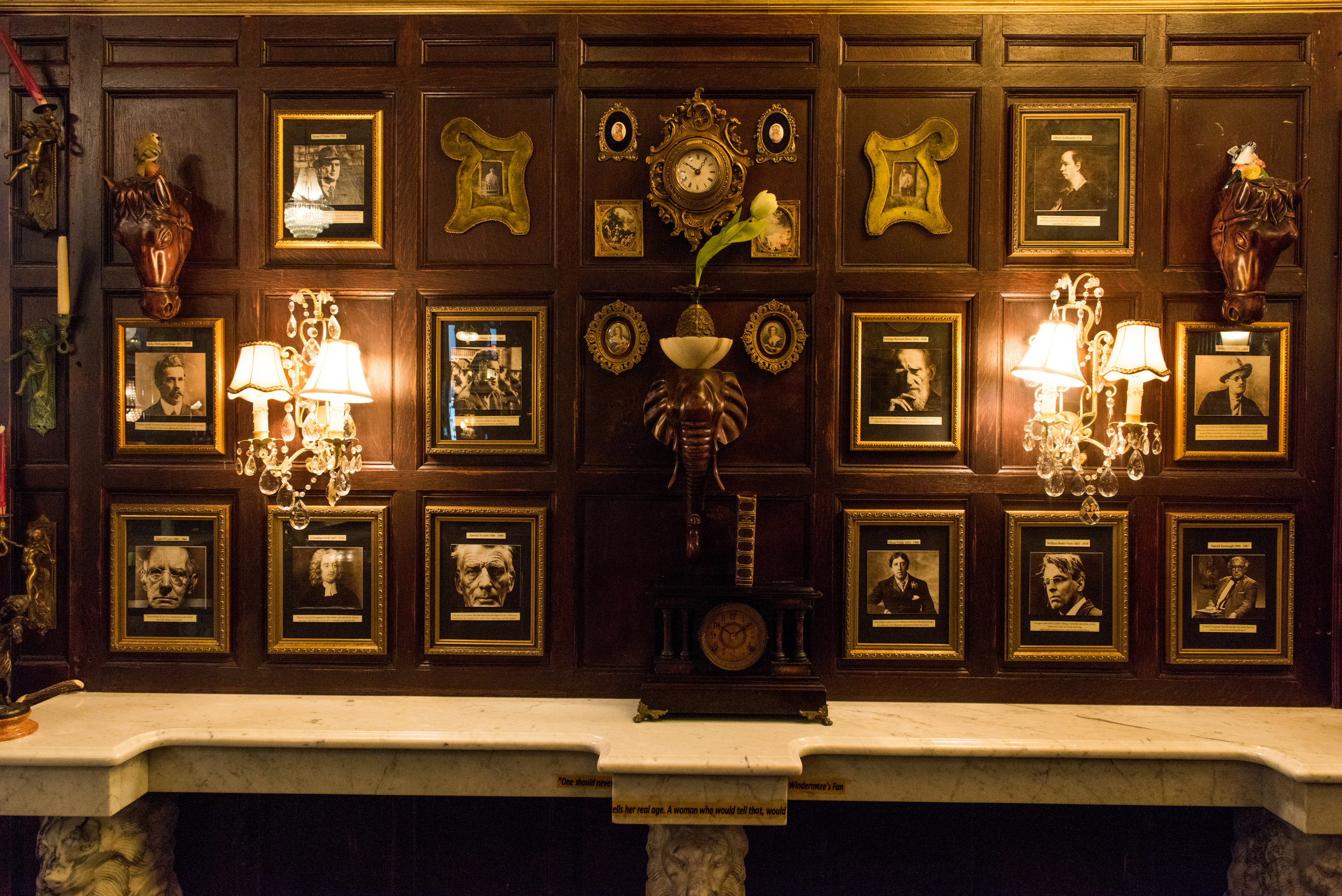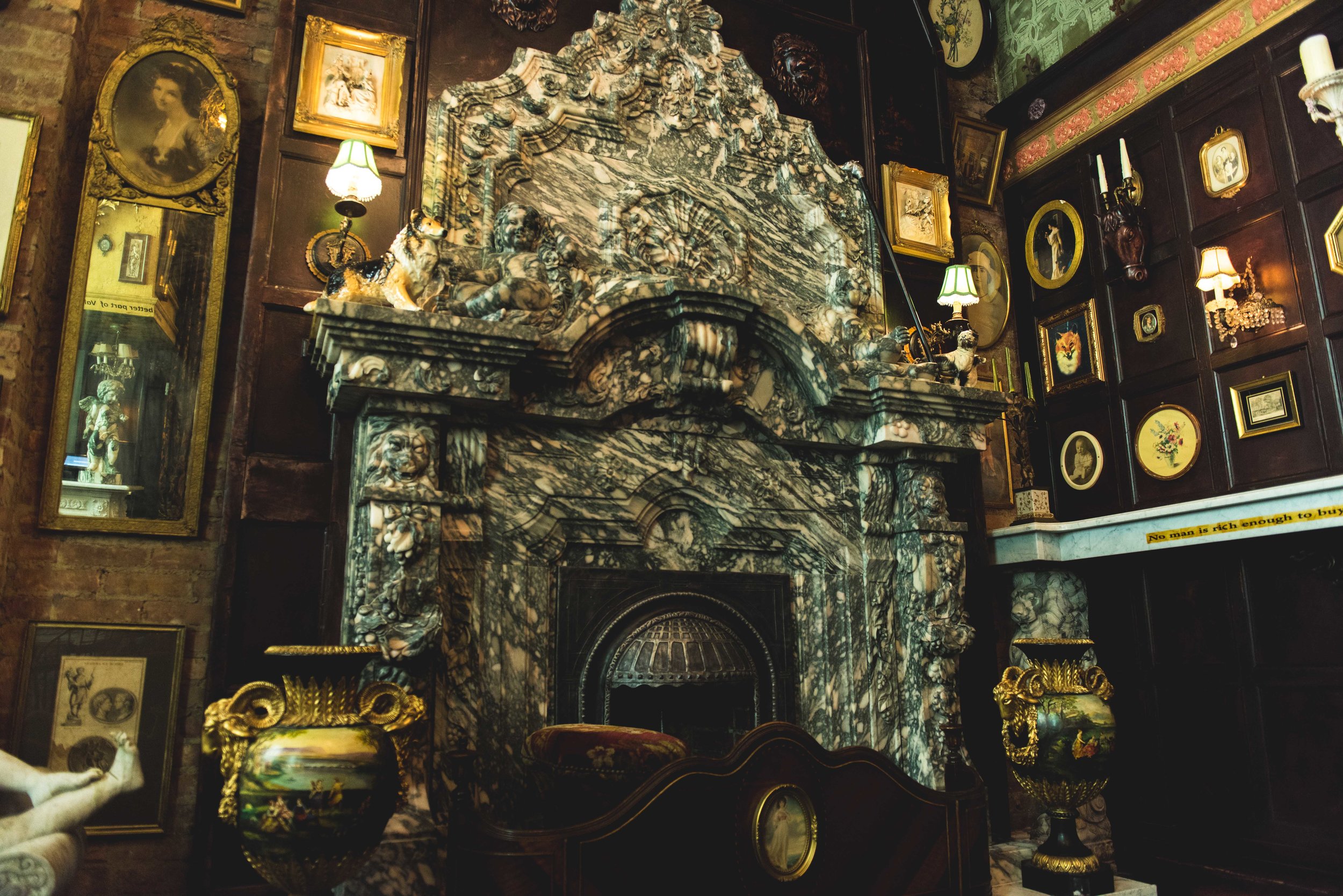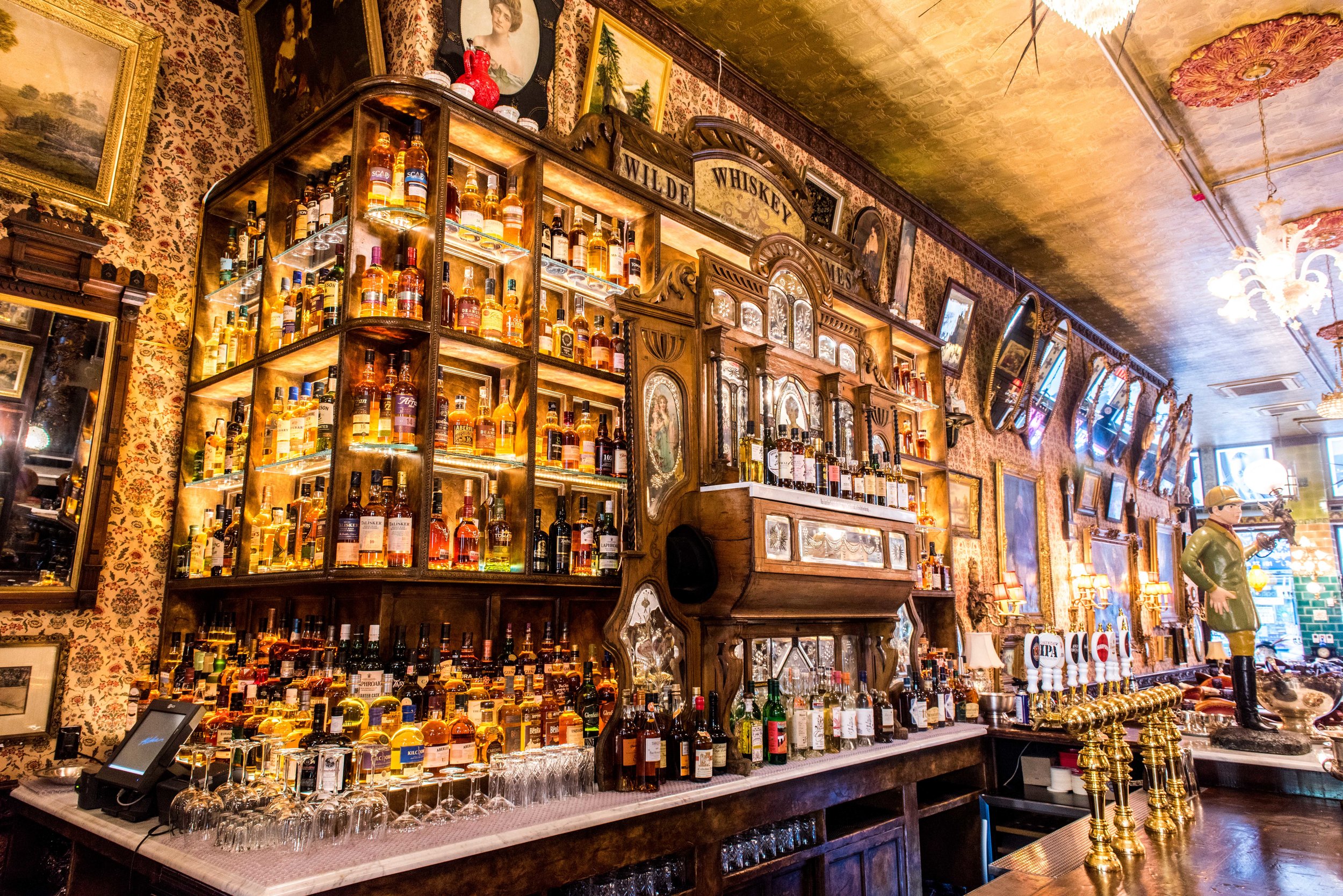hours of operation
Mon Thru WED: 2pm – 1:00 AM
THUr-FRI: 2PM - 2:00 AM
SAT: 11:00AM - 2:00 AM
SUN: 11:00AM -1:00AM
Driven by the spirit of the Irish playwright,
our bar pays homage to his GENUINELY prolific story.
Oscar Wilde turns the Victorian era on its head. – without relinquishing any of its glamour. Just like Wilde himself, we believe life should be lived to its fullest, with a touch of sophisticated debauchery. Why miss out on the fun?
We encourage living it to the fullest with Wilde abandon.
Some History of our space...
1909 - Building designed by Henry T. J. Fuehrman
1919 - Building takes on role as Prohibition Enforcement Headquarters due to the Volstead Act
January 1922 - It is discovered that the telephone lines at the Prohibition Headquarters had been tapped for months!
On December 31st, 1933 - Volstead Act is repealed and replaced with 21st Amendment of the Constitution
End of Prohibition to current day - Occupied by a slew of novelty and apparel firms until now when Oscar Wilde will settle into the space!
Our EXTRAORDINARY art and object Collection
Newspaper holders, bronze, acquired in Paris.
Chandeliers come from a collector in Wales.
Columns based off a design from a bar on Bond St. in London
Player Piano, 1819 comprises the back of the Whiskey Bar
Table bases, meant for fountains.
Dining room doors, Argentina, Second World War
The porcelain floor in the adjacent dining room from Priest’s quarters
Stained glass from Milan
Original paneling seen throughout the building from Hope Castle
Mens room based on Castle Lesliein Ireland where Paul McCartney got married.
Women’s restroom plays talk radio transmitted from Hope Castle.
Stairwell paneling from Hope Castle
Two-tiered Victorian Gothic lamp from Paris, acquired through a collector at auction.
Standing clock, 1800s, London
New York City’s longest bar at 118.5 feet.
French fireplace, 1840s, acquired on Bond St. from Bonhams and Phillips Auctioneers
Grandfather clock from England circa 1884.
Marble handcarved in Vietnam.
Fireplace inlay from Hope Castle, 1700s
China Cabinet, French from Paris.
Porcelain at the entrance is from Gosford Castle.
Wood paneling, original, Hope Castle.
26 antique clocks, multiple collections, all set to 1:50, the time of Oscar Wilde’s death.
Porcelain tile inlaid in original floor.
All Bronze table-bases.
Wall-paper made in Mexico by Annette Monter.
Wainscott inspired by 17th century design and made from sesame seeds, manufactured by a factory in Wales.
Mahogany bar carved with garlands and horse and elephant heads, from Gosford Castle in Northern Ireland.
Carrara marble top.
Chairs made in Mexico, and are inspired by the Irish exit with one arm.
ABOUT Oscar wilde
Born to Anglo-Irish intellectuals, Wilde soon proved himself to be firebrand of contemporary dialogue within the Victorian era, blurring the line between the socially acceptable and the love that dare not speak its name. He established himself within fashionable and intellectual circles, winning rank throughout the London scene through his biting wit, flamboyant style, and conversational talent. Considered one of the most successful playwrights of late Victorian London, Wilde often incorporated themes of decadence, duplicity, and beauty within his works. This was likewise seen in his one and only novel, The Picture of Dorian Gray in 1890. Tragically, Wilde's success was unable to spare him from persecution for his sexuality. Sentenced for two years, his only crime was a relationship with Lord Alfred Douglas, wrongfully deemed a gross indecency by the law of the time. Wilde's legacy lives on through the inexorable virtue of his talent and philosophy. In a celebration of love, his homeland of Ireland became the first nation in the world to legalize gay marriage by popular vote, a tribute to Wilde's progressive life and ideas. During a time in which established aesthetic and moral conventions were aplenty, Oscar Wilde challenged the concept of acceptance and carved a place for himself among literary and LGBTQ history.







